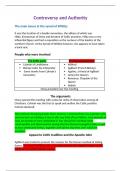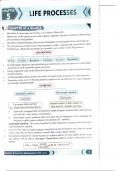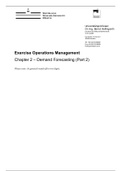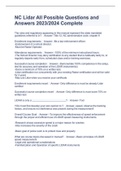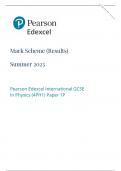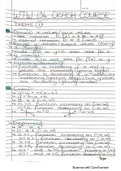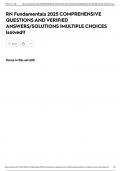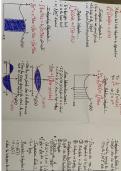Controversy and Authority
The main issues at the synod of Whitby
It was the location of a double monastery, the abbess of which was
Hilda, kinswoman of Oswy and devotee of Celtic practices. Hilda was a very
influential figure and had a reputation as the nurturer of the leaders of the
northern Church. At the Synod of Whitby however, she appears to have taken
a back seat.
People who were involved
The Celtic party The Romanising Party
Colmán of Lindisfarne Wilfred
Bishop Cedd, his interpreter Agilbert (French Bishop)
Some monks from Colmán’s Agatho, a friend of Agilbert
monastery James the deacon
Romanus, Chaplain of the
Queen
Aldrith
Oswy presided over the meeting
The arguments
Oswy opened the meeting with a plea for unity of observation among all
Christians. Colmán was the first to speak and outline the Celtic position.
Colmán declared:
The method of keeping Easter that I observe, I received from my superiors who
sent me here as a bishop; it was in this way that all our fathers, men beloved of
God, are known to have celebrated it. Nor should this method seem
contemptible and blameworthy seeing that the blessed evangelist John, is said
to have celebrated it thus, together with all the churches over which he
presided.
Appeal to Celtic tradition and the Apostle John
Agilbert was invited to present the reasons for the Roman method of dating
Easter. He asked if Wilfrid, who was more fluent in the English tongue, could
speak on his behalf, Wilfrid argued:
, The Easter we keep is the same as we see universally celebrated in
Rome, where the apostles Saint Peter and Saint Paul lived, taught, suffered and
were buried, We also found it in use everywhere in Italy and Gaul ….. and in
Africa, Asia, Egypt and Greece, and throughout the whole world. The only
exceptions are these men and their compliances in obstinacy…. in these two
remotest islands of the ocean ... who foolishly attempt to fight against the
whole world.
Appeal to universal practice
Colmán responded:
I wonder that you are willing to call our efforts foolish, seeing that we follow
the example of that apostle (John) for all the world acknowledge his great
wisdom.
Wilfrid replied:
Far be it from me to charge John with foolishness: he literally observed
the decrees of the Mosaic law, when the church was still Jewish in many
respects…So John, in accordance with the customs of the law, began the
celebration of the Easter Day on the evening of the fourteenth day, regardless
of whether it fell on the Sabbath or any other day.
Appeal to the authority of Peter
Wilfred continued, saying:
But when Peter came to Rome ... he realised Easter ought to be kept
..on the Lord's Day, falling between the fifteenth and twenty first
days of the moon. This (is) apostolic tradition…So Colmán, you neither follow
the example of John nor of Peter, whose tradition you knowingly contradict,
you neither follow the law nor the Gospel. John took no heed of the Sunday;
you celebrate Easter only on a Sunday.
Colmán argued, appealing to the tradition of holy Colmcille:
Did Anatolius, a man who was holy and highly spoken of, in the Church to
which you appeal, judge contrary to the law and the Gospel when he wrote
that Easter should be celebrated between the fourteenth and the twentieth
day of the moon? Or must we believe that our most reverend father Columba
The main issues at the synod of Whitby
It was the location of a double monastery, the abbess of which was
Hilda, kinswoman of Oswy and devotee of Celtic practices. Hilda was a very
influential figure and had a reputation as the nurturer of the leaders of the
northern Church. At the Synod of Whitby however, she appears to have taken
a back seat.
People who were involved
The Celtic party The Romanising Party
Colmán of Lindisfarne Wilfred
Bishop Cedd, his interpreter Agilbert (French Bishop)
Some monks from Colmán’s Agatho, a friend of Agilbert
monastery James the deacon
Romanus, Chaplain of the
Queen
Aldrith
Oswy presided over the meeting
The arguments
Oswy opened the meeting with a plea for unity of observation among all
Christians. Colmán was the first to speak and outline the Celtic position.
Colmán declared:
The method of keeping Easter that I observe, I received from my superiors who
sent me here as a bishop; it was in this way that all our fathers, men beloved of
God, are known to have celebrated it. Nor should this method seem
contemptible and blameworthy seeing that the blessed evangelist John, is said
to have celebrated it thus, together with all the churches over which he
presided.
Appeal to Celtic tradition and the Apostle John
Agilbert was invited to present the reasons for the Roman method of dating
Easter. He asked if Wilfrid, who was more fluent in the English tongue, could
speak on his behalf, Wilfrid argued:
, The Easter we keep is the same as we see universally celebrated in
Rome, where the apostles Saint Peter and Saint Paul lived, taught, suffered and
were buried, We also found it in use everywhere in Italy and Gaul ….. and in
Africa, Asia, Egypt and Greece, and throughout the whole world. The only
exceptions are these men and their compliances in obstinacy…. in these two
remotest islands of the ocean ... who foolishly attempt to fight against the
whole world.
Appeal to universal practice
Colmán responded:
I wonder that you are willing to call our efforts foolish, seeing that we follow
the example of that apostle (John) for all the world acknowledge his great
wisdom.
Wilfrid replied:
Far be it from me to charge John with foolishness: he literally observed
the decrees of the Mosaic law, when the church was still Jewish in many
respects…So John, in accordance with the customs of the law, began the
celebration of the Easter Day on the evening of the fourteenth day, regardless
of whether it fell on the Sabbath or any other day.
Appeal to the authority of Peter
Wilfred continued, saying:
But when Peter came to Rome ... he realised Easter ought to be kept
..on the Lord's Day, falling between the fifteenth and twenty first
days of the moon. This (is) apostolic tradition…So Colmán, you neither follow
the example of John nor of Peter, whose tradition you knowingly contradict,
you neither follow the law nor the Gospel. John took no heed of the Sunday;
you celebrate Easter only on a Sunday.
Colmán argued, appealing to the tradition of holy Colmcille:
Did Anatolius, a man who was holy and highly spoken of, in the Church to
which you appeal, judge contrary to the law and the Gospel when he wrote
that Easter should be celebrated between the fourteenth and the twentieth
day of the moon? Or must we believe that our most reverend father Columba


